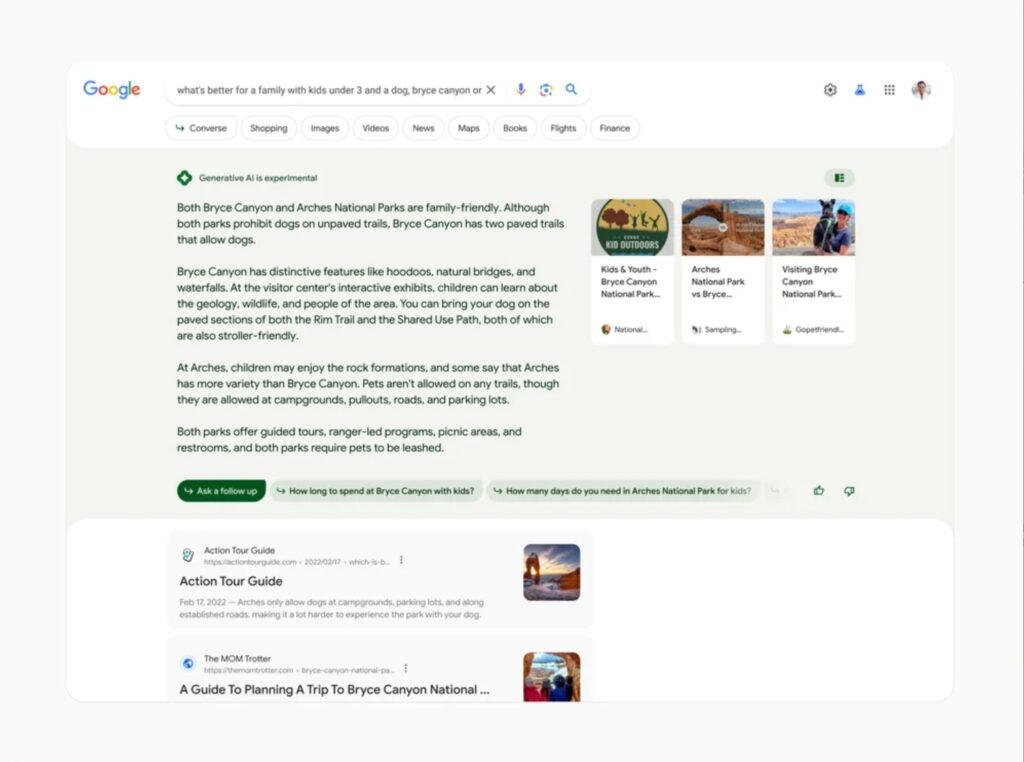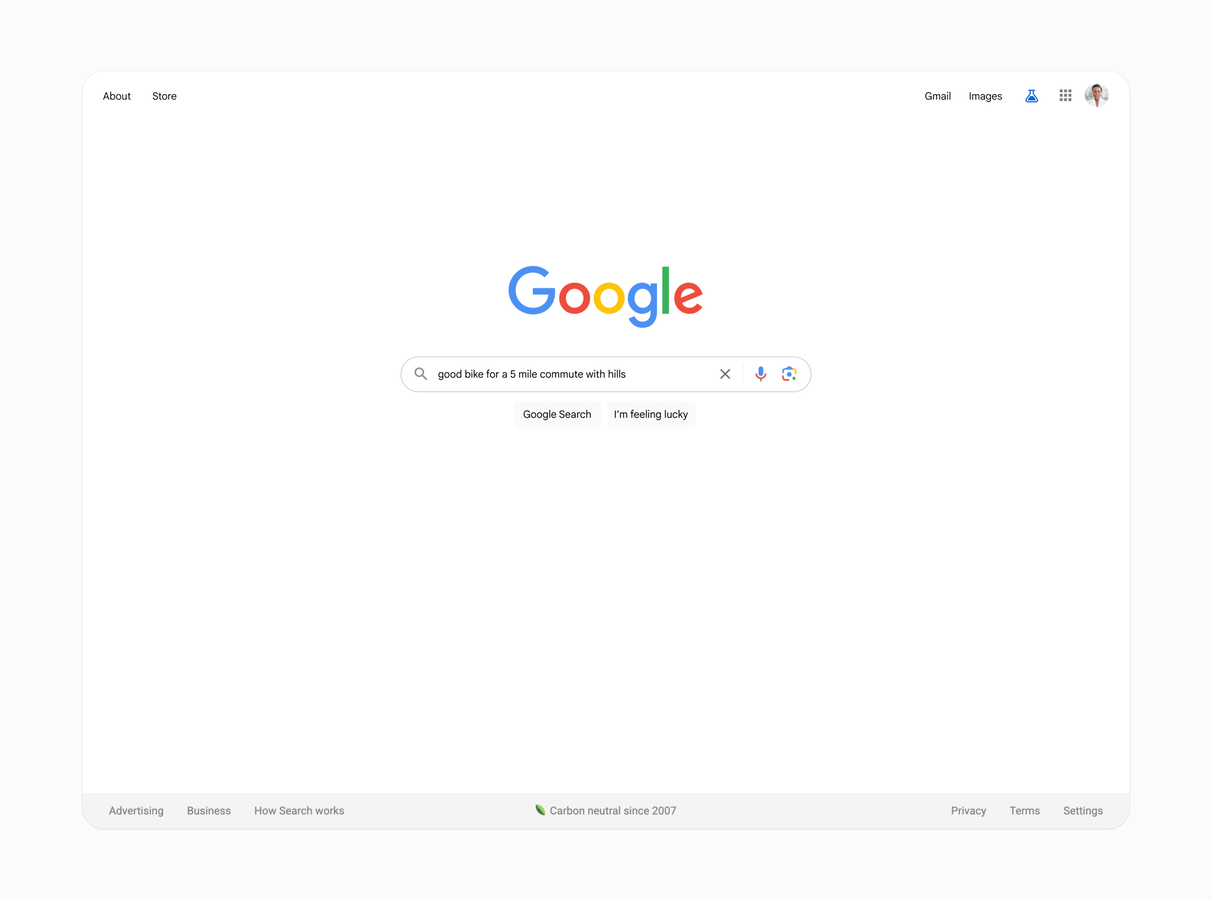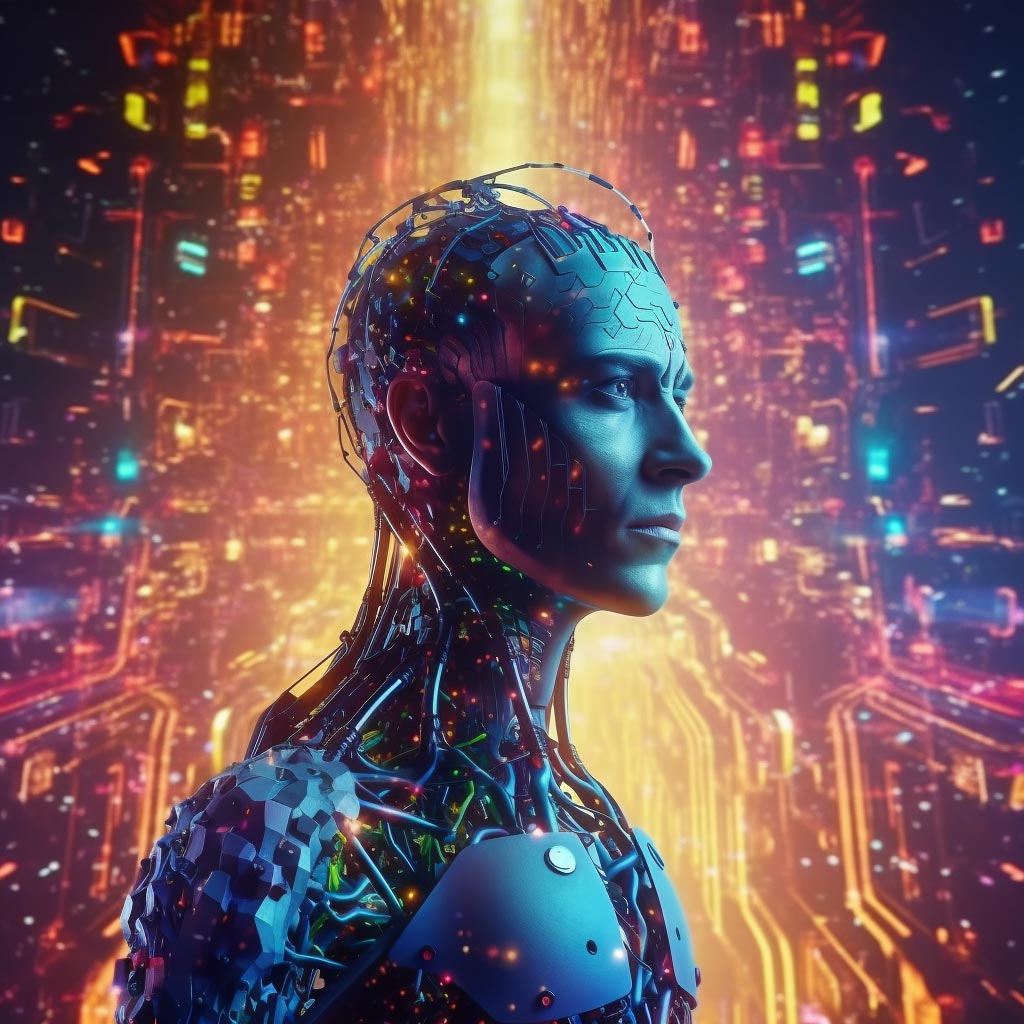Let's have a chat about taking your digital marketing to the next level
This week Google held its I/O 2023 developer event, a reveal of what the information giant has been working on. New tech, like a folding Pixel smartphone, was revealed along with the biggest news in the search engine community, the announcement of AI-guided answers for prompts entered into its search engine. Google calls this new technology its Search Generative Experience (SGE).

Here’s What Google’s Search Generative Experience Looks Like
Once the user types in the question to the search bar on Google, the algorithm will then generate a listing of results; what we in the industry refer to as a search engine results page (SERP). So far, so good.
What’s new is the addition of boxes that contain additional information about suggested answers to the user’s query. Google will cite existing websites in these new AI-generated answers, and you can dive deeper for that particular information by clicking on the boxed result.

The AI-generated results appear to be color coded in the examples I’ve seen (as in the case of the blue AI-generated copy in the example above), but this can be subject to change as Google rolls out the feature in the coming months. For now, people are beta testing Google’s SGE via Google Labs. There’s apparently a long waitlist to try the feature out, but a couple of days ago both myself and several members of Snaptech saw the AI-generated SGE answers being displayed on SERPs.

What This May Mean for the Future of SEO and Organic Results
There’s no doubt that anything AI related is hot right now. ChatGPT knocked over the shelf six months ago, and improvements to Midjourney’s image creation software continues to impress people. AI-generated video content is also starting to be seen. By the end of 2023 these independent breakthroughs may start to converge.
Google doesn’t want to be left off of the AI bus as it starts to drive away from the stop. Even though the big G has been investing billions of dollars into artificial intelligence development for two decades, it’s watched as ChatGPT, DALL-E and Midjourney grabbed the public’s interest. Perhaps more of a worry is whether Google’s main competitor in search engine development, Microsoft, will catch a lucky break with its AI development and then include it in their Bing search engine before Google can deploy their own version of it.
While the search engine companies enter a AI arms race for search engine share, companies that can learn how to catch the attention of the AI algorithm will win the race. Obviously, any company that’s committed to content development wants more organic traffic coming to their web pages. If those businesses can show up in the AI boxed results, they will be more visible to their audience. Time will tell if the color-coded AI-generated SGE answers outperform the click-through rate of Google’s paid ads or their top organic results, or even how the format will mutate and change in the next twelve months.
It’s still proving to be an interesting time to be working in search engine optimization.

